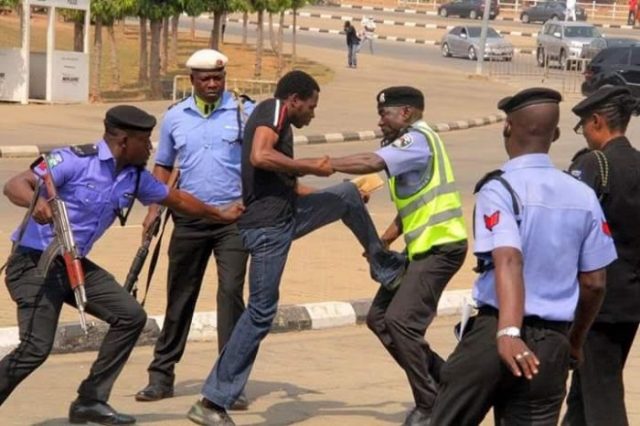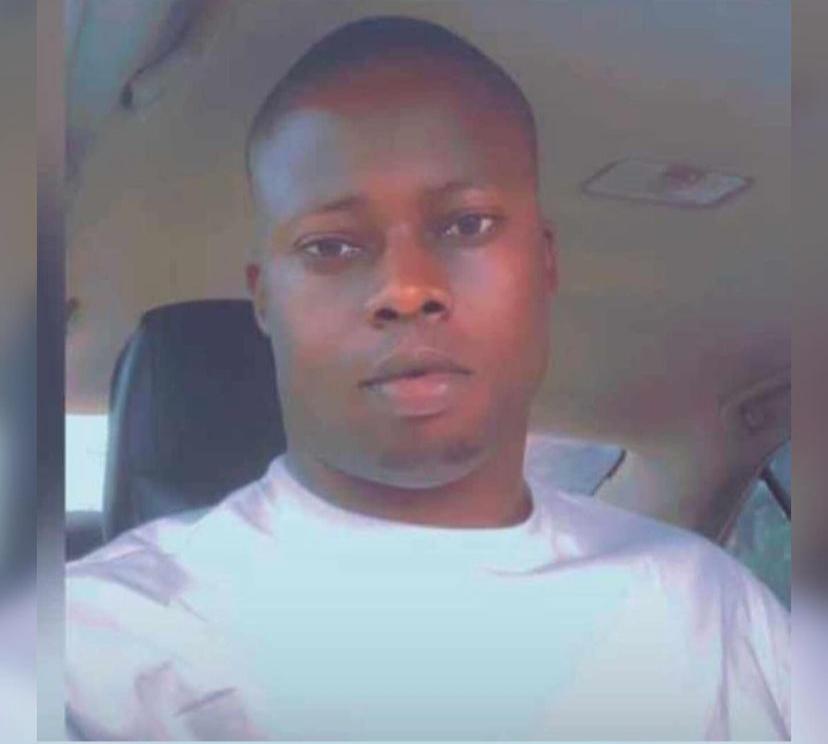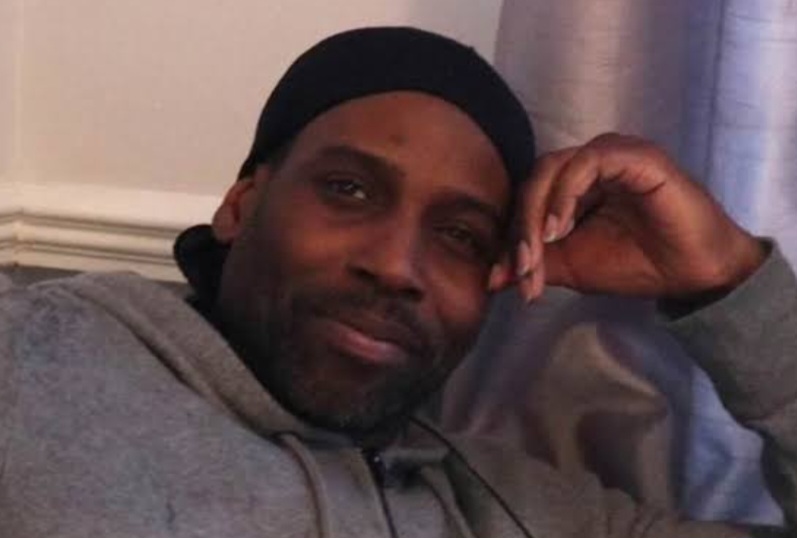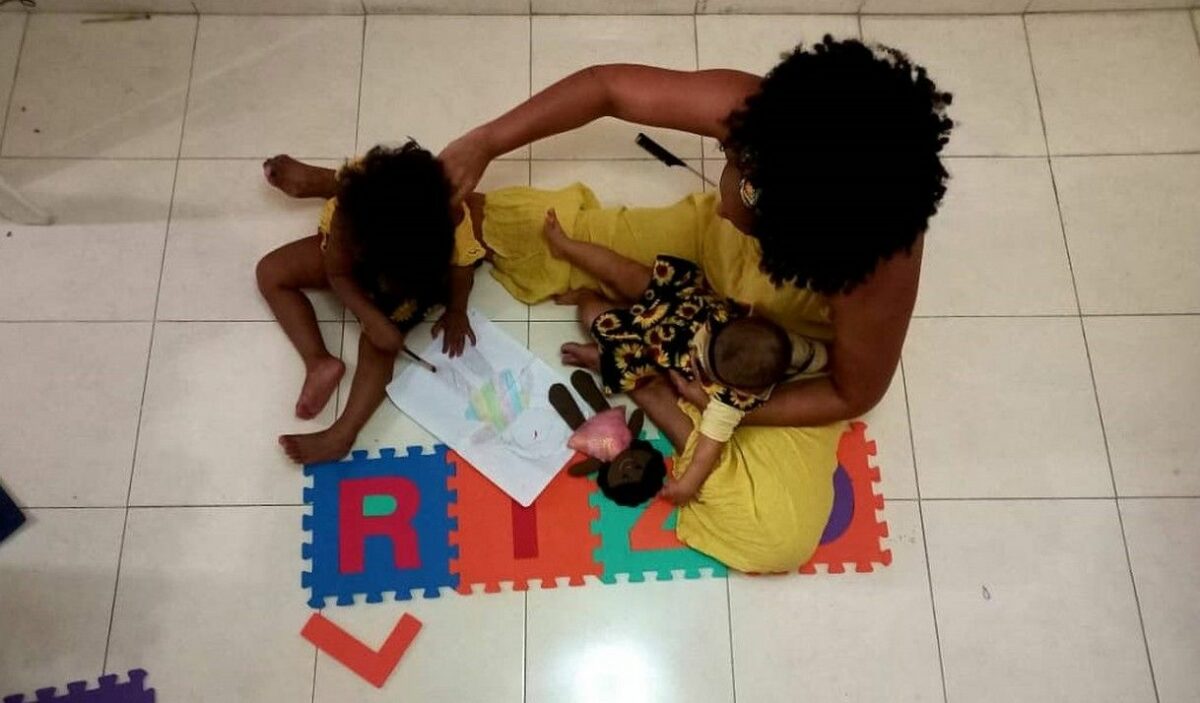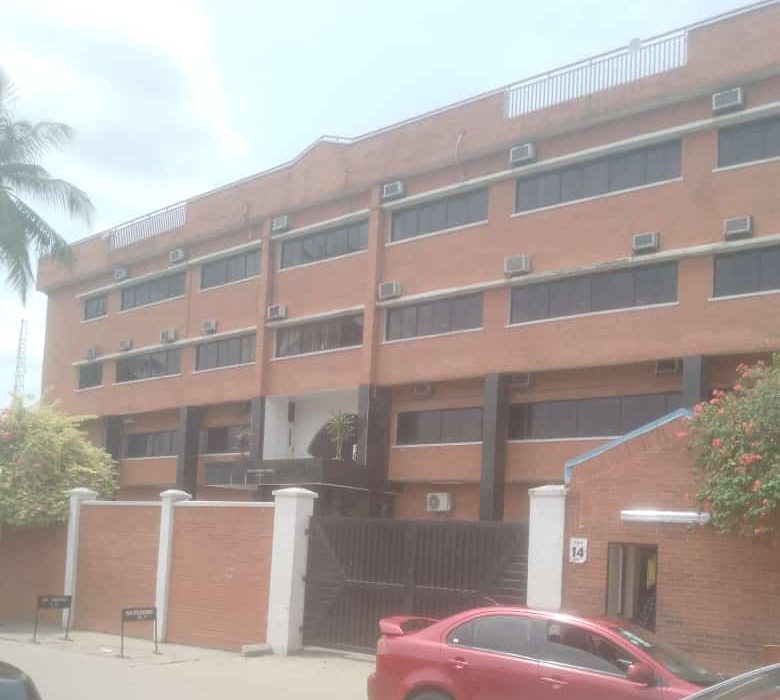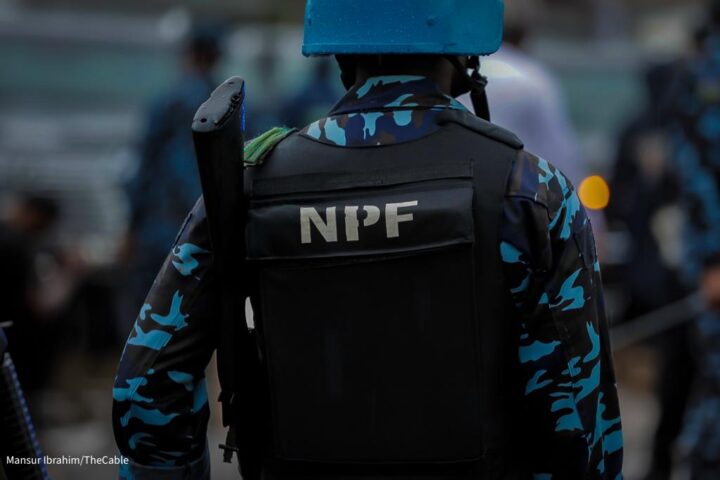In 2020, the Special Anti-Robbery Squad (SARS), a special unit in the Nigeria Police Force, was accused of harassing, maltreating and extorting innocent youths, and this fueled the EndSARS demonstrations. Due to the wave of the protests, the unit was later scrapped.
However, harassment and exploitation have continued on the highways. In this report, FIJ spoke with students who have been accused of being internet fraudsters by the police on Nigerian roads.
HIGHWAYS FOR CHECKS, AND NOT BALANCES
Oseni Malik is a student of Obafemi Awolowo University. Sometimes, he travels two hours home to spend the weekend with his family. His experience on a bright Sunday morning at a police checkpoint while traveling back to school is one he will forever remember.
On this day, he was the only young person in the bus. Not fond of conversing with strangers, he got busy with his phone.
“Twenty minutes into the journey, we approached a police checkpoint after Jobele. Our driver slowed down and gave them a N50 tip. The officer rejected the money and asked him to park,” Malik said.
He had sighted a ‘suspect’ in the bus, and the driver knew.
“As the driver was parking, he asked if I was into ‘Yahoo’ more than three times. Other passengers were already looking at me. I told them no,” Malik continued.
The officer came by the bus and asked Malik to come down.
“He asked for my luggage, and I brought out my bag filled with some foodstuff and two pieces of clothes. When he couldn’t find anything, he moved closer to search my pockets. I stopped him and told him I would do it myself. He looked shocked,” he said.
Malik said he had his ATM card and a sum of N3,000 in his pockets. He proceeded to reveal his student identity by showing his school and hostel ID cards.
Malik soon found himself in more trouble when he refused to hand over his phone, though the officer refused to disclose his reason for requesting it.
“He shouted that I was questioning him. His voice changed. He said he knew I was a fraudster. Two other officers joined him, and he told them that I was a rude fraudster who was questioning his authority because I didn’t want to release my phone.”
The two officers requested Malik’s phone the second time and he refused again. He was then dragged to their van and told he would be interrogated. “They were very angry,” he said.
Asked whether his experience was because of his outfit, Malik said he wasn’t sure, but believed the police now saw good phones as a pointer to cybercrime.
“I’m not sure if it was the dressing. I was putting on a round-neck and joggers,” he continued. “But the issue is the police have the mindset that every young person is into fraud. We cannot use good phones again.”
JOURNALIST, BUT BRANDED A ‘YAHOO’ BOY
Malik’s story is just one of many cases of Nigerian police branding young people ‘Yahoo’ suspects at highway checkpoints. Olowe Charles, a student journalist, had decided to switch from corporate to a casual outfit on the day he was stopped by the police.
Charles was on his way to Ondo State when he was stopped at a police checkpoint after the military checkpoint before entering the state.
“Our bus was stopped, and the driver ‘settled’ them,” he began. “As he was about to drive off, one of the officers saw me from outside, because I was sitting by the door.”
Charles said he was on a face cap, plugged in and enjoying some soulful Christian songs when he heard the officer shouting at the driver to stop because he had carried a fraudster.
“As the bus stopped again, one officer came to the door and shouted at me to get down because I was a ‘Yahoo’ boy. I didn’t utter a word,” he said.
“Before I knew it, other passengers had begun to shout that they suspected I was a ‘Yahoo’ boy because I didn’t talk to anyone in the bus and I was busy pressing my phone. I heard some say, ‘God has caught him today.”
Charles said he didn’t pay attention to anyone and acted as if they were not talking to him. He said at that point, the officer was already dragging the door. “The driver came down to open the door and the officer started calling me a ‘Yahoo’ boy and asked me to produce my phone. I didn’t respond. Then he pushed me, and I asked if he was talking to me.”
He said the officer was surprised by the way he responded to him. “I told him I could charge him for libel and denting my image publicly by calling me a ‘Yahoo’ boy without committing any cybercrime,” said Charles.
Charles said the senior officer came around and asked what was going on. “I told him his officer could be guilty of libel, and I wouldn’t take it lightly with them for harassing me. He (the senior officer) asked me who I was, and I showed him my press ID card.”
Then Charles was allowed to go. “He added that I dressed nice before allowing me to go. It would have been a serious case if not for my confidence as a pressman.” he said. “I wasn’t bothered about being physically assaulted and taken to their office. Many have fallen victim to these unprincipled officers.”
NOT BECAUSE THEY WANTED TO GET ‘YAHOO’ BOYS
Malik said he was expecting the worse when he was dragged to their van, fearing that he would be taken away and framed for a crime he did not commit. “Their commandant asked what happened, and the first officer narrated with lies. I didn’t make any comment. The Oga then asked me to remove my nose mask and narrate my side of the story.”
He narrated his story sharing the sad experience of his friends who gave the police their phones and were framed for crimes they did not commit.
“He asked for my ID card, and I gave it to him. Then he said he had been thinking about who I was because I wasn’t afraid of them. He said he knew students from OAU to be daring because he had a younger brother that finished from there,” said Malik.
“That was how we settled it and I returned to my travel. We spent up to 40 minutes dragging it.”
STEREOTYPED BRANDING CONTINUED
“I was stopped because of my afro hairstyle and cross bag. It was embarrassing,” shared Awoko Emmanuel.
Emmanuel is a student of the University of Ibadan who also fends for himself by laying floor tiles and making artworks for people. He said he was rushing to complete a project that morning, when his bike was stopped by the police.
“They questioned me, and I replied,” Emmanuel said. ”But they still did not allow me to go until I showed them all my work gadgets inside my bag.”
He said he arrived late to workand almost disappointed his customer.
It was not an easy one for Ilori Segun, a law student with intimidating height and vigor. It took the intervention of his driver to calm the situation, as the police officer had cocked his rifle.
“He asked everyone to come down from the car,” Segun said. “He was doing a thorough search, and when he got to me, I asked for a search warrant. He was very angry that I questioned him. Immediately, he cocked his rifle and shouted that I identify myself.”
“The driver started begging. When I later showed my student ID card, he (the officer) was laughing and told the driver that he knew I was a student because I asked for a warrant.”
Rachimim, another student, said he was saved by his mum, who took it personally with the police when they started to harass him.
“I dressed well. Even one NYSC guy was in uniform. They told us to come down from the cab, and they searched us. They just wanted to exploit us,” he said.
IN THE EYES OF THE LAW
Commenting on the idea of the police conducting stop and search on highways based on passengers’ clothes and gadgets, Festus Ogun, a Lagos-based legal expert, said such profiling is unreasonable.
“Under our extant laws, police have powers to stop and search vehicles upon reasonable suspicion that a crime has been or is likely to be committed. However, completely stereotyping citizens’ gadgets and dressings is unreasonable and is not supported by the law. No dressing is peculiar to some criminals. The greatest criminals in the country are hiding in government dresses quite decently,” he said.
Part 4 of the Nigeria Police Act empowers the police to search if they have reasonable grounds to suspect. However, Oluwafemi Adeniyi, an Oyo state-based lawyer, said the law is being used arbitrarily and with the wrong motive.
“They (the police) have been using it arbitrarily. For security reasons such as in these critical times, it is okay but not to search for ‘Yahoo’ boys. The enforcement of the provision is only to detect illegal things, persons or stolen properties,” he explained.
Asked whether the highway checkpoints are the best the police can do to track cybercriminals, he said. “Highways are the most absurd places to find cybercriminals. Most of them now stay in ridiculous areas in towns. You hardly see them on highways. The police should go to hotels and clubhouses”.
Adeniyi said the police are not being sincere in their actions to curb cybercrime, and it will continue to grow.
“The question is not what can be done. It is how they should do it. These police officers in every state know those boys well enough, because some of them get monthly stipends from them to avoid arrest,” he said.
Festus Ogun pointed out that the unwholesome conduct of the police officers stems from the poor policing system in the country.
“The current practice in our policing system shows we still have a long way to go. Police should make reasonable investigations before arrest. However, in Nigeria, arrest precedes investigation. And this is why we see policemen harassing citizens on the road without lawful justification,” he said.
“For the police to curb cybercrime, the policing system itself must be completely reformed. What we call the Nigeria Police Force today is itself a criminal enterprise. The ultimate question is whether what they do at checkpoints is geared toward reducing crimes or simply making a fortune out of innocent young people.”
Subscribe
Be the first to receive special investigative reports and features in your inbox.


